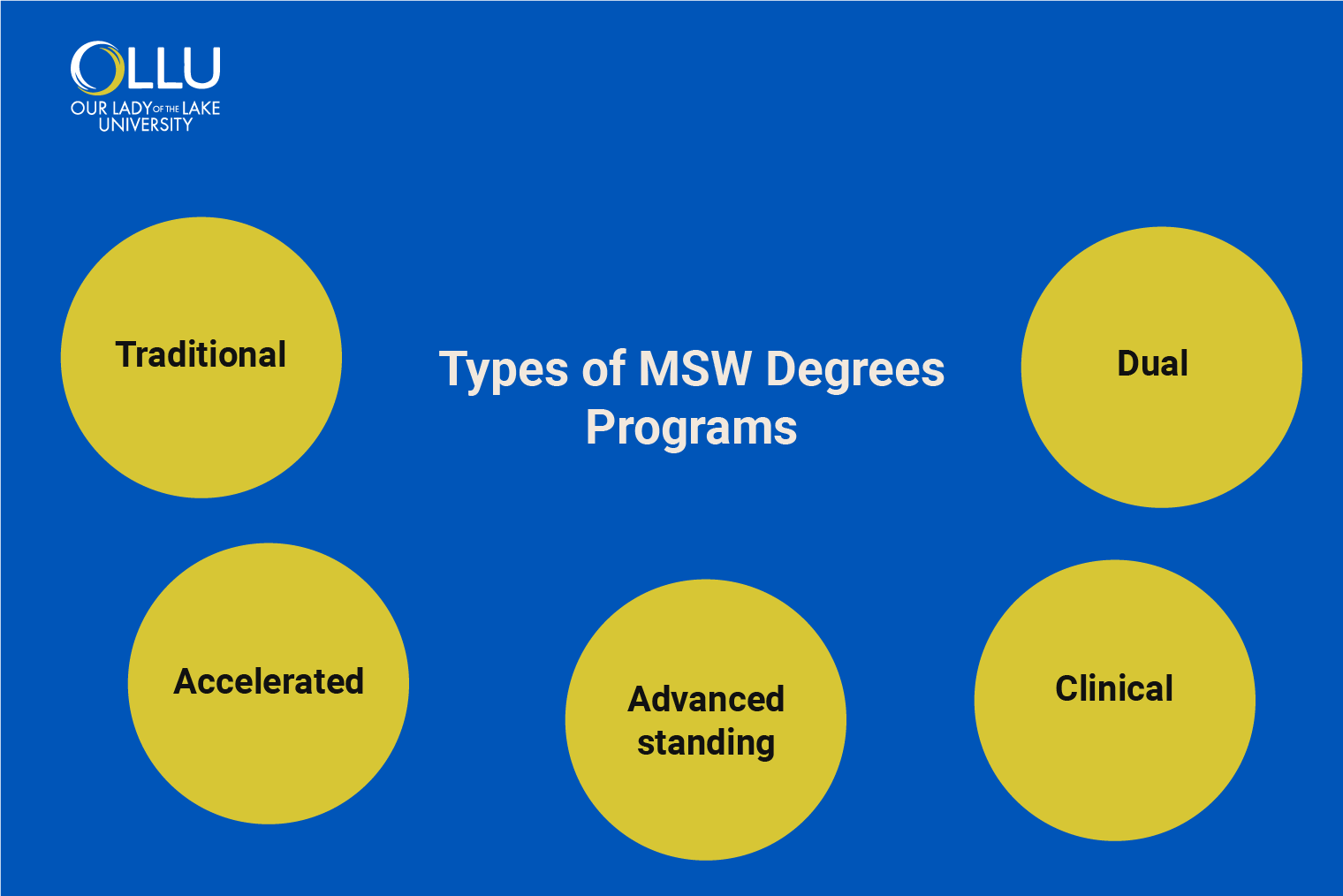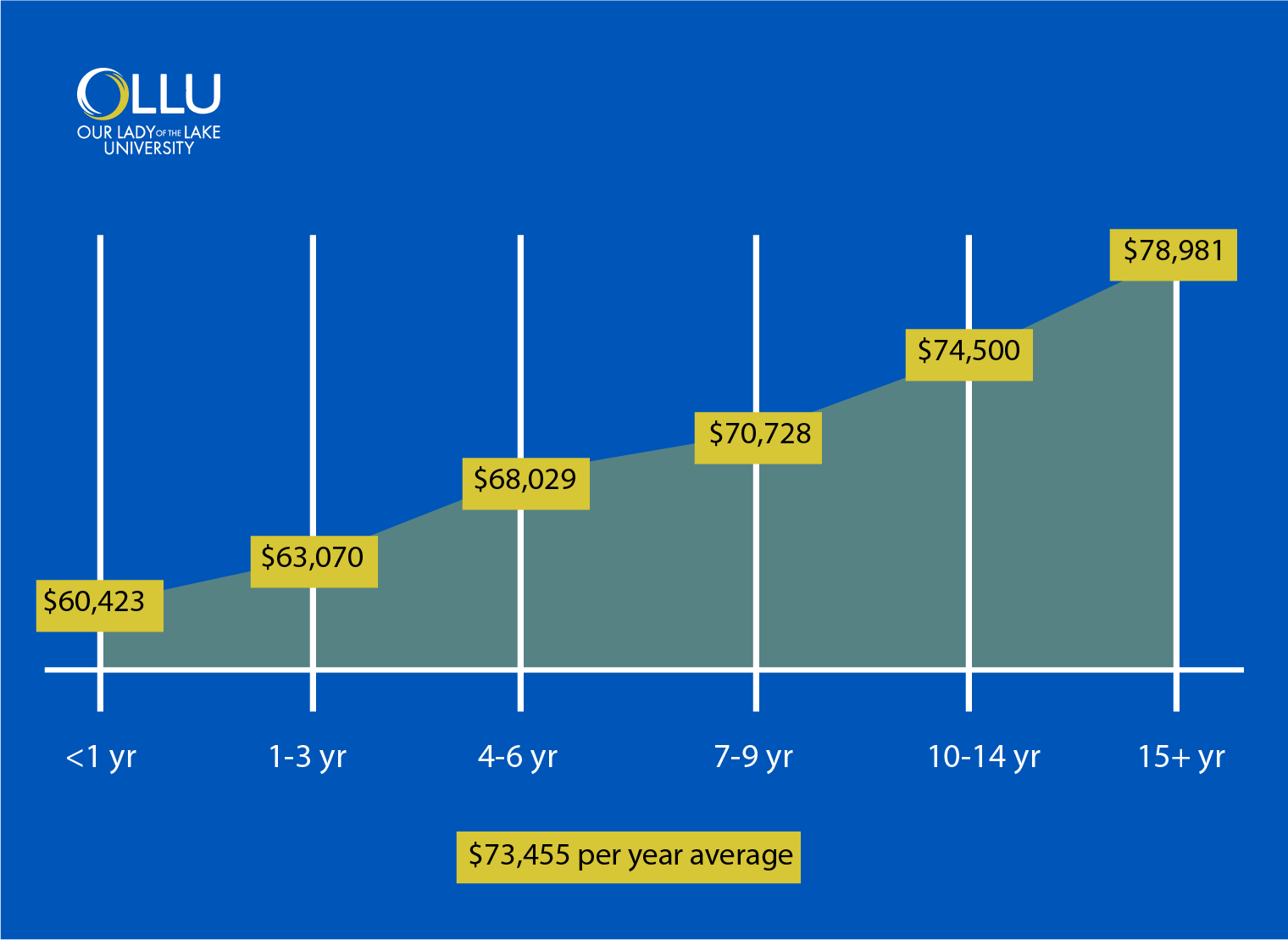What Is an MSW Degree? Your Questions Answered
Nov 09, 2023

Curious about "What is an MSW degree?" Dive into the specifics of the Master's in
Social Work program, from curriculum and specialties to career prospects.
If you find fulfillment in making a positive impact on individuals' lives and have
a genuine interest in addressing societal challenges, then a career in social work
might just be your calling. This dynamic field offers an unparalleled opportunity
to effect meaningful change in communities and help those in need. Whether your passion
lies in advocating for the marginalized, supporting individuals facing adversity,
or driving systemic reforms, with an MSW under your belt, you can join this diverse
and rewarding path.
Read on and learn more about this career path as we address key questions such as "What is an MSW degree?" and guide you toward making an informed decision about whether this career aligns with your goals.
What Is an MSW Degree?
MSW, short for Master of Social Work , is a postgraduate qualification gained through academic programs designed to explore the intricacies of social welfare and community well-being.
Unlike bachelor degrees, MSW degrees cover various social work principles in more depth, extending well beyond the foundational knowledge. Their advanced curriculum will equip you with the knowledge and skills needed to address multifaceted social issues and make a meaningful impact in the lives of individuals and communities.
How Does an MSW Program Work?
MSW programs are designed with the primary objective of nurturing a profound comprehension of social work dynamics, emphasizing both theoretical understanding and hands-on application of social work principles. Therefore, they generally involve a combination of traditional classroom lecturing and fieldwork or practical experience.
Typically, you will complete foundational coursework during the program's first half and then later choose a concentration or specialization area, such as clinical practice, child welfare, or healthcare, and explore it in more depth.
Types of MSW Degrees Programs

You can choose from several types of MSW degrees, each with its own perks. So, let's take a closer look at some of them and help you better understand the options available.
Traditional
The traditional MSW program is designed for students who hold a bachelor's degree in a field other than social work. Its curriculum involves fundamental courses that aim to introduce social work as a profession, along with specialized classes. The program usually takes two years of full-time study, with the first year focusing on foundational coursework and the second year dedicated to advanced practice and field placement.
Accelerated
Accelerated MSW programs, as the name suggests, are significantly shorter in duration. These programs often take only one year to complete, building upon the foundational knowledge acquired during undergraduate studies.
While these programs offer a quicker path to your degree, it's important to keep in mind that they require a full-time commitment and prioritization of your studies.
Advanced standing
In contrast to the traditional MSW programs, the advanced program is only available to students who already possess a BSW (Bachelor of Social Work). The way such programs are structured allows students to bypass some foundational coursework and move directly into advanced studies.
Because of this direct jump to more specialized courses, the program's overall length is often reduced to one year of full-time study, much like an accelerated program.
Clinical
Clinical MSW programs, in addition to core courses, focus on advanced training in clinical practice and mental health interventions. These programs can equip you with the specialized skills and knowledge required to work with individuals, families, and groups dealing with mental health challenges, emotional disorders, and other complex psychological issues.
Such MSW programs often include supervised field placements or internships in clinical settings, like mental health clinics, hospitals, rehabilitation centers, and private practices.
Dual
Lastly, dual-degree programs offer an innovative pathway within MSW types. These programs seamlessly integrate an MSW with another advanced degree, such as a Master of Public Health (MPH), a Juris Doctor (JD), or a Master of Public Administration (MPA). By pursuing this dual-degree route, you can acquire expertise in social work and another specialized field, developing a distinctive skill set ideal for tackling intricate societal challenges.
MSW Courses and Curriculum
The curriculum of an MSW program is comprehensive and includes courses covering various aspects of social work practice. Typical subjects include social policy analysis, human behavior and development, research methods, cultural diversity, and legal and ethical issues in social work. For example, some foundation courses in our MSW program are:
- Professional Writing for Social Work
- Principles of Generalist Social Work Practice
- Human Behavior in the Social Environment
- Generalist Social Practice with Organizations and Communities
- Social Welfare Policy and Services
- Evaluation of Social Work Practice with Hispanic Children and Families
- Theories and Perspectives: Hispanic Children and Families
Additionally, through our program, you have the chance to engage in field placements, allowing you to gain hands-on experience and apply classroom knowledge in real-world settings. These placements are supervised by experienced social work professionals and provide invaluable opportunities for skill development and professional networking.
In case you already have a bachelor's degree in social work , you are eligible to enroll in our Advanced Standing program, featuring fewer credits and less fieldwork, with a curriculum incorporating courses such as:
- Psychopathology
- Theories and Perspectives: Hispanic Children and Families
- Social Work Practice
- Evaluation of Social Work Practice with Hispanic Children and Families
- Hispanics in the U.S.: Policy and Programs
- Advanced Standing Social Work Field Education
- Advanced Integrative Seminar
- Advanced Standing Social Work Field Education
MSW Degree Candidate Requirements
Candidate requirements for MSW programs can vary significantly based on the specific program and institution. These criteria are set to ensure that candidates possess the necessary foundation and qualifications for successful participation in the program.
As an illustration, for our Foundation Program, applicants must meet the following prerequisites :
- Bachelor's degree from an accredited institution.
- Cumulative undergraduate GPA of at least 2.5, or a 3.0 for the most recent 60 semester hours of undergraduate work.
Whereas, for the Advanced Standing Program, candidates are required to meet the following criteria:
- Bachelor's degree in Social Work from a program accredited by The Council on Social Work Education.
- Cumulative undergraduate GPA of at least 3.0.
MSW Degree Cost
The price of getting a Master of Social Work degree can vary greatly depending on the school, type of program, and where it's located. Typically, tuition for an MSW program can range from a few thousand to tens of thousands of dollars annually. In fact, statistics show that master's degree programs, in general, cost $65,134 .
It's important to remember that on top of tuition fees, there are additional expenses such as textbooks, travel, and living costs. Exploring financial aid opportunities like scholarships, grants, and student loans is an excellent option to ease this financial burden.
How Long It Takes To Get an MSW
Generally, the time needed to complete an MSW program can range from one to three years, depending on the program format and whether you are enrolled full-time or part-time.
As mentioned, traditional MSW programs usually take two years of full-time study, whereas accelerated programs may be completed in as little as one year. You may also qualify for advanced standing programs, which can be finished in a shorter time frame.
MSW Salary

The estimated total pay for a Social Worker holding a Master of Social Work (MSW) degree in the United States is approximately $73,455 per year . However, salaries in this field can range widely, with entry-level positions starting at around $50,000 per year and experienced professionals earning up to $109,000 annually.
Salary levels can fluctuate based on various factors, including location, specific field of practice, and level of expertise. For example, based on the years of experience social workers earn:
- $60,423 per year for up to 1 year of experience
- $63,070 per year for 1 to 3 years of experience
- $68,029 per year= for 4 to 6 years of experience
- $70,728 per year for 7 to 9 years of experience
- $74,500 per year for 10 to 14 years of experience
- $78,981 for 15 or more years of experience
Why Should You Get an MSW Degree?
Pursuing a Master of Social Work degree offers numerous benefits beyond financial gain. By obtaining such a degree, you gain advanced knowledge and specialized skills in social work practice, empowering you to effectively address intricate social issues and provide valuable support to individuals and communities.
Additionally, an MSW provides access to a diverse range of fulfilling career opportunities. This range of possibilities allows you to align your career with your passions and convictions while also enhancing your professional credibility. Ultimately, investing in an MSW is not only an investment in your financial future but also in your potential to positively impact society.
What Can You Do With an MSW Degree?
An MSW degree opens up opportunities for various roles within the field of social work. Graduates with an MSW can pursue careers in multiple settings, including clinical settings, offering therapy and mental health support, in schools, assisting students and families with educational and behavioral challenges, and in government branches such as child welfare services, public health departments, correctional facilities, and departments of social services.
Some typical roles you can explore with an MSW degree include:
- Clinical social worker
- Medical social worker
- School social worker
- Geriatric social worker
- Community center director
- Criminal justice social worker
- Medical case manager
- Substance abuse counselor
- Adoption counselor
- Psychiatric social worker
The Bottom Line
All in all, an MSW degree is a versatile degree providing the skills and knowledge needed to make a positive difference in the lives of others through a myriad of different roles. The benefits of pursuing such a degree are numerous, including a competitive salary and opportunities for professional advancement.
So, if you're ready to take the next step toward a rewarding career in social work, we invite you to join our BSW program , hybrid or online MSW program, or even PhD in social work . Explore the possibilities and be part of the transformative force in social services.
FAQs
Is an MSW worth it financially?
Obtaining a Master of Social Work degree can be financially beneficial, as it offers a great return on investment. Additionally, individuals with master's degrees tend to earn higher salaries than those with a bachelor's or another undergraduate degree.
Is MSW a hard degree?
The level of challenge in an MSW program varies based on your strengths and areas of expertise. While the program may present its difficulties, perseverance, and dedication can see you through to success.
What is the difference between MSW and LCSW?
An MSW, or Master of Social Work, is an advanced graduate degree providing comprehensive training in social work practice, policy, and research. On the other hand, an LCSW, or Licensed Clinical Social Worker, is a professional credential achieved through licensure in clinical social work practice, signifying expertise in therapy and mental health services.